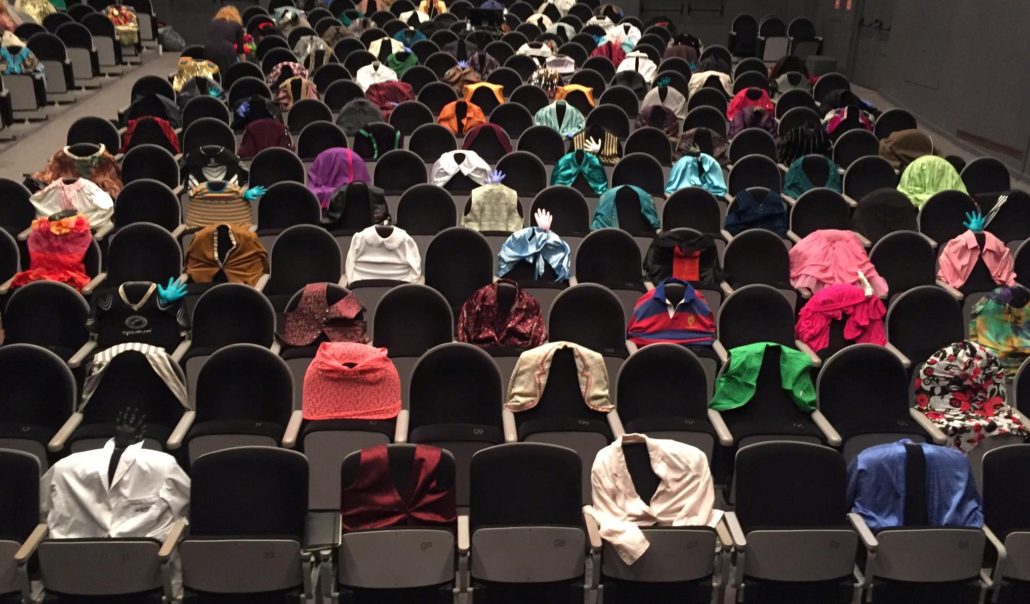A Community in Quarantine: The Social Worlds of Alternative Theater During the Pandemic
Katarzyna Kalinowska – Katarzyna Kułakowska – Maria Babicka – Michał Bargielski
Theater Life and the Pandemic
When the World Health Organization declared the COVID-19 pandemic on March 11th, 2020, the Polish Governmental Crisis Management Team made the decision to order a temporary closure of all cultural institutions, libraries, local cultural centers, philharmonics, art galleries, cinemas, museums, operas, operettas, theaters, as well as schools, universities, and art education institutions. Every theater in Poland, regardless of its statute, character, or organizational structure, faced the consequences of that sudden decision. The ‘freezing’ of the cultural sector – and in particular those areas that operate in direct contact with audiences – should be considered both in terms of economic losses and the weakening of relationships with audiences, often fostered over a number of years. Theaters faced a twofold challenge: to stay afloat and maintain financial liquidity on the one hand, and maintain contact with their audiences, perhaps even attracting new ones, on the other. The analysis of the first months of theater closures around the world conducted by Krystyna Mogilnicka (2020) shows that despite many differences across theater structures in individual countries, there are many similarities in the functioning of the theater sector during the pandemic. As a result of limiting offline activities, both globally and in Poland, previously unpopular (or viewed skeptically) initiatives appeared online. These included making archival recordings of performances available online, premiere screenings of video recordings of performances from recent seasons, live broadcasts of performances played to an empty audience, talks with artists, viral campaigns, serialized plays, readings, performances, and online workshops. This proves that during the pandemic, some theaters – often reluctantly and rarely enthusiastically – transferred some of their activities online. Mogilnicka also writes about the common universe of concerns shared by various institutions: “Theaters are being re-opened in the final phase of easing the so-called lockdown, accompanied by a sense of great social responsibility and uncertainty about the possibility of maintaining old practices or artistic shape of performances, as well as profitability when forced to apply the recommended security measures” (2020).

Performance „Kino Moralnego Niepokoju“ directed by Michał Borczuch, Nowy Teatr, Warsaw; photo by Maurycy Stankiewicz
More than two months after restrictions on cultural institutions had been imposed, on May 19, 2020, guidelines were given for the reopening of theaters, operas, and philharmonics. This phase assumed a gradual resuming of activities, at first without the participation of the public, in order to create safe conditions for the resumption of administrative work and rehearsals. The guidelines allowed the organization of events with audience participation at a later stage and only under certain sanitary conditions. At the end of August 2020, when this article was written, one could see various strategies for resuming artistic activity of theaters. Some theaters have just reintroduced live performances. These usually take place outdoors and with a reduced number of audience members. While the unexpected but essentially quite short phase of total lockdown leveled the circumstances of various theaters, generating similar emotions, difficulties, and doubts, the return to offline activities seems to largely depend on organizational capabilities of particular institutions, their technical facilities, legal issues, and ways of financing their activities.
To read the full article please follow the link.
The article was originally published in Przegląd Socjologii Jakościowej 3 (17/2021).

The audience during the premiere of „HA(E)USER“ directed by Helena Ganjalyan, March 5th 2021, Jerzy Szaniawski Drama Theatre in Wałbrzych; photo by Dariusz Gdesz



